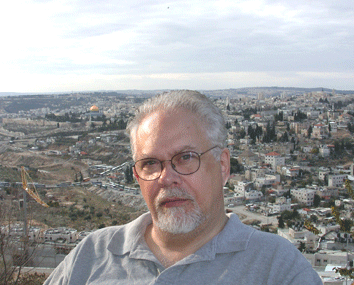- Richard Bulliet
Infobox Writer
name = Richard W. Bulliet

caption =
pseudonym =
birthdate = birth date and age|1940|10|30
birthplace =Rockford ,Illinois
occupation =author ,university professor
nationality = flagcountry|United States
period =
genre =
subject =
movement =
spouse =
children =
relatives =
influences =
influenced =
website =Richard W. Bulliet is a professor of history at
Columbia University who specializes in the history ofIslamic society and institutions, the history oftechnology , and the history of the role of animals in human society.Early life and education
Bulliet grew up in
Illinois . He attendedHarvard , from which he received a B.A. in 1962 and a Ph.D. in 1967. He is the grandson of Clarence Joseph ("C.J.") Bulliet, the art critic and journalist.Work
Several of his books focus on
Iran but deal also with the larger Muslim world, including "The Patricians of Nishapur: a Study in Medieval Islamic History" (1972), "Conversion to Islam in the Medieval Period: An Essay in Quantitative History" (1979), and "Islam: the View from the Edge" (1994). His books on a broader view of Islamic history and society include "Under Siege: Islam and Democracy" (1994) and "The Case for Islamo-Christian Civilization" (2004). His book "The Camel and the Wheel" (1975) brings together his interest in the histories of technology, animal domestication, and theMiddle East , dealing for example with the significant military advantage early Muslim armies gained from a slight improvement in the design of cloth camel saddles. He would return to the history of animal domestication with his "Hunters, Herders, and Hamburgers: The Past and Future of Human-Animal Relationships" (2005). [http://www.columbia.edu/cu/cup/catalog/data/023113/0231130767.HTM]He is the writer and editor of books of more general interest as well, including "The Columbia History of the Twentieth Century" (editor, 1998), "The Encyclopedia of the Modern Middle East" (co-editor, 1996), and "The Earth and Its Peoples: A Global History" (co-author, 1997). He has also written several novels which draw on his knowledge of international politics and the Middle East, and is a promoter of the validity of comics as an art form.
Bulliet's scholarship is known for innovative use of historical evidence and for radical questioning of the assumed roles that
technology ,religion ,politics and animal domestication play in human society. Like any outspoken scholar of a subject as controversial as theMiddle East , Bulliet has drawn fire from various sides in various continuing debates: criticism of his qualified support of the 1979Iranian Revolution ; criticism of his views on theIsraeli-Palestinian conflict as overly favoring thePalestinian cause; and the standard anti-Orientalist critique that as an Occidental scholar of Oriental societies, he cannot report on those societies without consigning them to the status of "Other ."Bulliet's current opinion pieces on the Middle East, as well as his latest writings on animal domestication and "post-domesticity," are syndicated by
Agence Global .According to an interview in "Columbia" magazine's Fall 2007 edition, Columbia President
Lee C. Bollinger credits Bulliet with the idea for inviting Iranian PresidentMahmoud Ahmadinejad to speak on campus onSeptember 24 , 2007. The engagement was highly controversial.External links
* [http://www.columbia.edu/~rwb3 Bulliet's Columbia Homepage]
* [http://www.unesco.org/dialogue2001/en/bulliet.htm Bulliet's address to the Dialogue among Civilizations] ,United Nations ,New York City ,5 September 2000
* [http://www.columbia.edu/cu/cup/catalog/data/023108/0231082193.HTM Islam: The View from the Edge back cover matter]
* [http://www.agenceglobal.com Agence Global]
Wikimedia Foundation. 2010.
